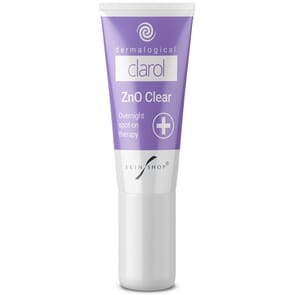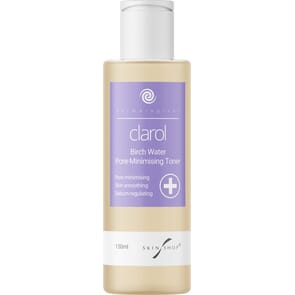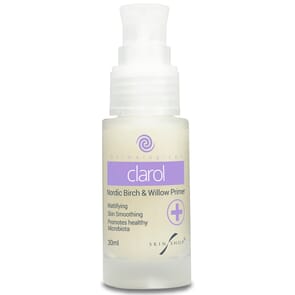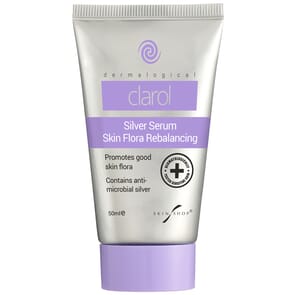How To Treat Acne

Teen acne usually responds well from over the counter acne treatment containing antibacterial agents, namely benzoyl peroxide, which is a type of bleach for the skin. Because teenagers typically have oily skin, the over the counter acne solutions are geared toward this skin type. However over use or long term use of these products can lead to skin becoming drier and more sensitive, which in turn can then trigger sensitive skin adult acne later on.
Regular cleansing is very important for teen acne. Teens should wash skin twice daily with a gentle but effective cleanser for acne-prone skin. Most of these products contain an agent called salicylic acid. Salicylic acid can exfoliate the skin as well as decrease inflammation. The cells in the lining of the hair follicles of teens with acne tend to multiply quickly, and stick to one another. Salicylic acid works by dissolving this cement that holds those sticky cells together in the clogged pores.
However in recent news, skincare experts warn that common teen acne treatments can cause allergic reactions. The skincare regulating body the Food and Drug Administration (FDA) has issued an urgent caution to consumers about two ingredients, benzoyl peroxide and salicylic acid, which are present in most anti-acne treatments commonly available in chemists.
So even teen skin can be susceptible to sensitivity to harsh anti-acne treatments and may need to try a more gentle approach to treatment as suggested later for treating adult acne.
Mineral sun creams containing zinc and multi-tasking lighter formulation foundations or tinted moisturisers with anti-bacterial and good skin flora agents in them can help keep acne breakouts to a minimum. In addition, medicated spot cover ups can help treat and camouflage spots at the same time.
Adult acne responds well to combinations of more natural, gentle and multi-action anti-acne skincare regimes. It can’t just be treated with one method like teen acne
The key difference in treating adult acne as opposed to teen acne is maintaining the integrity and balance of the healthy skin around the acne, while at the same time attacking the bacteria getting into the acne lesions. It’s crucial that skin care regimes and products do BOTH, as skin is more fragile, drier and more sensitive.
Modern technologies have developed less invasive treatments for the long term management of adult acne without destroying or drying out skin.
Smart antimicrobials
Smart antimicrobials are ingredients that do not kill good skin flora and only target bad skin flora. The skin, like the stomach, contains both good and bad bacteria. The good bacteria is necessary for strong healthy skin and to prevent dryness and premature ageing. The bad bacteria is what gets into acne lesions and leads to pus and swelling (i.e spots).
Smart antimicrobials are able to distinguish between the two bacteria, leaving good skin bacteria to flourish and multiply, while killing off the bad bacteria
Anti-microbial silver is one of these smart-antimicrobials and is now being used in modern anti-acne products for adult acne as a means of controlling inflammation. Used daily as part of a skincare routine smart antimicrobial treatments can help prevent or lessen acne outbreaks and make outbreaks less severe. Skin Shop’s Silver Serum is a new smart-microbial anti-acne treatment containing pure anti-microbial silver.
Bacterial shields
These are new ingredients that literally produce an organic ‘shield', over the skin’s surface to prevent bad bacteria from entering. Worn over areas prone to spots or over forming spots, these bacterial shields help create a surface that bacteria find hard to grip on to and so help prevent bacteria growing in the spot or the weakened skin barrier areas.
Bacterial shields are made by a special bacterial fermentation process and are known as polysaccharides. One of these bacterial shields that has been developed for use in adult anti-acne skin care products is called Teflose, derived from eth word ‘teflon’ as it forms a Teflon-like anti-bacterial shield over vulnerable areas of acne-prone skin to stop bad bacteria latching on, while not damaging or inhibiting the healthy balance of skin under the shield.
Telflose has also been shown to help prevent the formation of biofilms, which dermatologists are now researching as a possible cause of persistent and treatment-resistant acne.
Skin Prebiotics
Skin prebiotics are literally ‘food’ for good skin bacteria. A skin prebiotic works much the same as a food supplement prebiotic for the gut, except it’s for the skin.
Good skin bacteria feeds on the prebiotic and so grows faster making skin stronger and less prone to infection or weakened skin barrier, while bad skin bacteria are reduced as they don’t ‘palate’ the skin prebiotic as well as the good skin bacteria.
Skin prebiotics maintain a healthy balance of good and bad skin bacteria which helps skin fight off environmental damage which can lead to weak spots and allow bad bacteria to rush in a multiple leading to spots and inflammation. One of the most recent skin prebiotics is an ingredient called Biolin, which contains five different types of prebiotic that are perfect foods for feeding good skin bacteria.
Sebum preservers
Sebum is a protective substance that sits in the pores of the skin to protect it. We produce more sebum due to a number of factors including hormonal fluctuations, stress and to a degree diet.
Besides various fatty substances and water, sebum also contains salts, amino acids and urea. Like any other natural substance, sebum rots when exposed to warmth, which is what often makes spots swell up, become painful and go yellow, green or black (blackheads).
Sebum is a very attractive breeding ground for bacteria as it has a highly nutritious content for bacteria to feed off so it starts to rot quite quickly. Fresh sebum is almost clear or white. It goes yellow and sometimes green or black when it rots.
A new breed of anti-acne products contain special ingredients that act as ‘sebum preservers, so they effectively stop the sebum rotting so quickly and so prevent swelling.
More Acne FAQ's:
Our Favourite Products for Acne:





